Ravenna, Italy
Ever since Russian tanks rolled into Ukraine, it’s been widely assumed that Europe’s right-wing populists are finished. Figures such as Marine Le Pen, Matteo Salvini and Viktor Orban have all been cast as Putin’s useful idiots – defending his nefarious deeds because they saw him as a vital ideological ally. Now that Putin’s craven cruelty can no longer be excused, it’s argued, time is up: both for their sordid dance with Putin and for them.
‘The invasion has already done huge damage to populists all over the world who prior to the attack uniformly expressed sympathy for Putin,’ writes Francis Fukuyama in a recent essay.
But what if this prevailing analysis is mistaken? Might war in Ukraine make right-wing populists even more popular? It is a conflict that exposes the difference between bad nationalism, the imperialistic kind expressed by Putin, and good nationalism, the patriotic kind expressed by Ukraine: the desire to defend rather than impose one’s country, its way of life and culture.
The war puts the raison d’être of most European right-wing populists – the defence of the nation state and national sovereignty – back at the top of the political agenda. And it exposes the dishonesty of automatically branding such parties as ‘anti-immigrant’ or ‘anti-refugee’. Poland, which is governed by the nationalist Law and Justice party, has taken in 1.9 million Ukrainian refugees – more than the rest of the world put together. They are given Polish social security numbers and the rights to school and welfare.
Viktor Orban has been just as welcoming in Hungary, which has taken in 270,000 Ukrainians so far. He has kept the 85-mile border open, he said, because he trusts Hungarians ‘to tell the difference between who is a migrant and who is a refugee’. Yet last week the European Parliament voted to impose economic sanctions on Poland and Hungary for violating basic European values and being too nationalistic – in Poland’s case, for its constitutional court’s ruling last year that EU law should not take precedence over Polish law.
It is harder to portray the rulers of Poland or Hungary as drawbridge-up xenophobes when they are midway through such spectacular acts of generosity.
Many commentators are already complaining that the only reason these refugees are accepted is because they are white. There may be some truth in that. But the main reason Ukrainians are being welcomed with open arms in Poland and Hungary is not to do with skin colour. It is because they pass the right-wing populist test: women and children are refugees; single men are economic migrants.
Take Salvini, so often cast as ‘Italy’s far-right firebrand’. As Italy’s interior minister he was famed for his hard line on those arriving on boats. But he has now run a mercy mission to the Ukrainian border to bring back a coachload of refugees to Italy – where they will stay in hostels funded by the Lega, his party. He was recently in the Polish town of Przemysl and agreed to hold a joint press conference with its mayor who – though also a right-wing populist himself – really does not like Putin.
There are said to be 350,000 refugees in Przemysl, whose population is 60,000. Littledid Salvini know that it was a trap. The mayor produced from his jacket a T-shirt identical to the one that Salvini had worn on a visit to Moscow in October 2014 depicting Putin wearing a military beret above the caption ‘The Army of Russia’. The mayor said Salvini should go and see the refugee centre, ‘to see what your friend Putin has done to the 50,000 a day crossing the border’.
With that, he was gone – leaving the chastised Salvini to face the TV film crews as the cameras rolled. All they wanted to know was if he condemned Putin’s invasion. ‘Certo! Ovvio! We condemn Putin! We condemn Russia’s war!’ he replied. A clip of the footage – with Salvini’s condemnation of Putin cut out – went viral and was shared 4.7 million times. The wider point it made, of course,still stood: Salvini – who has forged a political career from declaring war on illegal immigration – had gone to Poland to help Ukrainian refugees.
Take another Italian right-wing populist:Giorgia Meloni, leader of Brothers of Italy and a Lega ally. Her party doesn’t have close ties with the Kremlin but when Putin was re-elected in 2018, Meloni tweeted her compliments. She’s now using the conflict to unreservedly condemn the Kremlin – and amplify her theme about the distinction between economic migrants and refugees. ‘For years we’ve been told this fairytale about supposed refugees, boatloads of lone men in search of work… but normally if there’s a war the men stay behind to fight and the women and children flee,’ she said.
Things could prove harder for the French hopeful Marine Le Pen, whose party received a €9.5 million Russian bank loan to help finance her last presidential campaign. She has said that the invasion of Ukraine is ‘absolutely indefensible’. But a campaign leaflet of her with Putin is a serious embarrassment. For now, if the polls are right, the war in Ukraine has not damaged her popularity. Her support has increased in the past fortnight, though not nearly as much as President Macron’s.
We may be waiting some time for the hotly anticipated implosion of the populists. Polls suggest they’re just as popular as ever. Moreover, it is precisely the strength of their core belief – love of one’s country – that is being demonstrated by those fighting in the Ukraine. After all, how many people would die for the European Union?
Got something to add? Join the discussion and comment below.
Get 10 issues for just $10
Subscribe to The Spectator Australia today for the next 10 magazine issues, plus full online access, for just $10.
You might disagree with half of it, but you’ll enjoy reading all of it. Try your first month for free, then just $2 a week for the remainder of your first year.


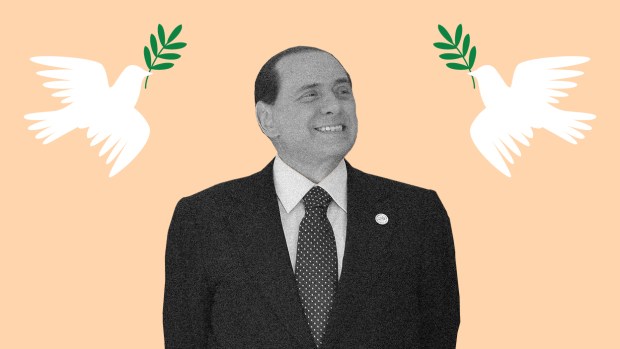
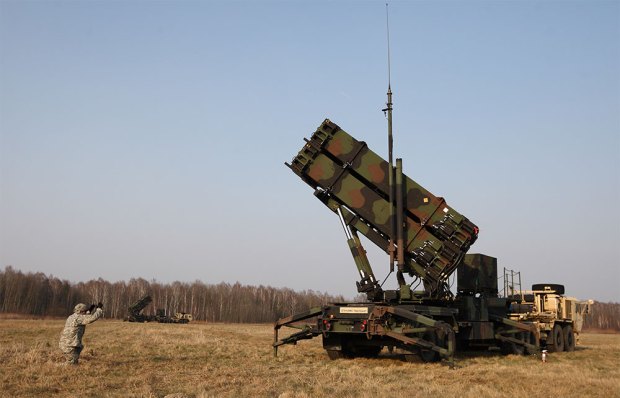
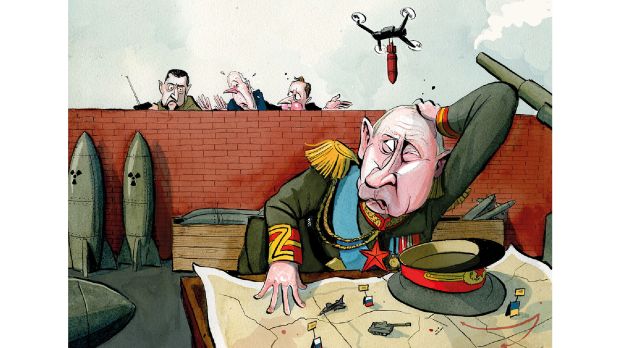
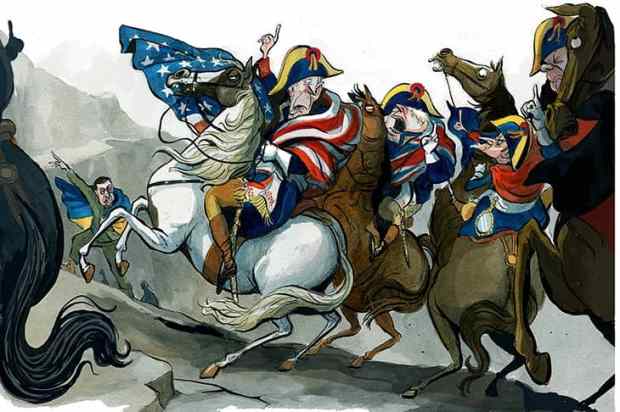

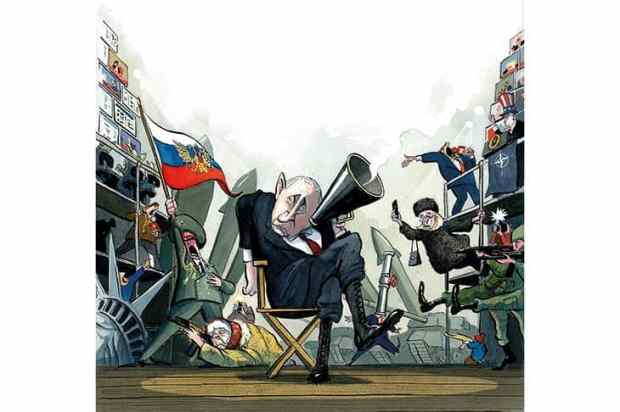






Comments
Don't miss out
Join the conversation with other Spectator Australia readers. Subscribe to leave a comment.
SUBSCRIBEAlready a subscriber? Log in